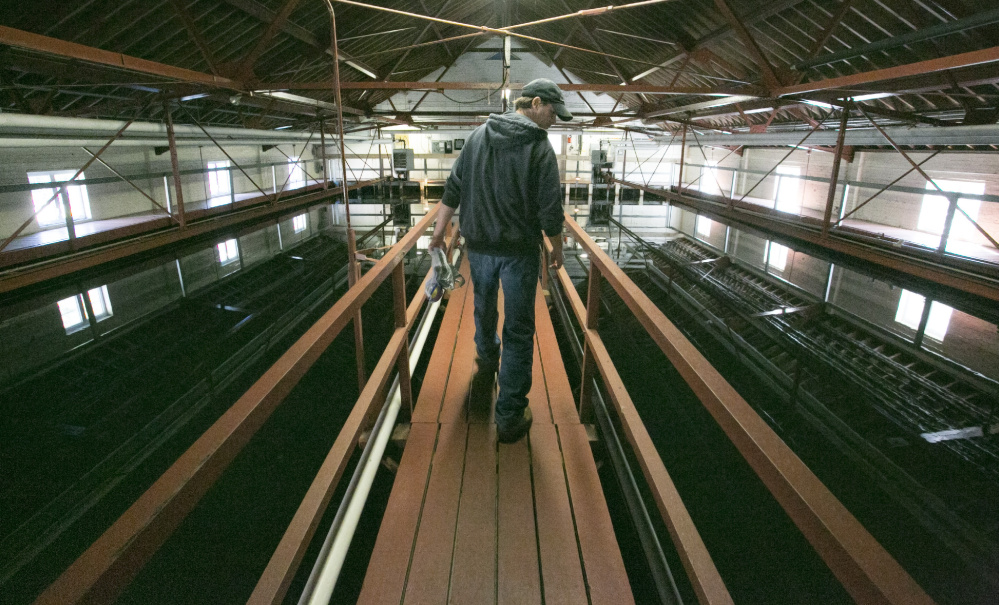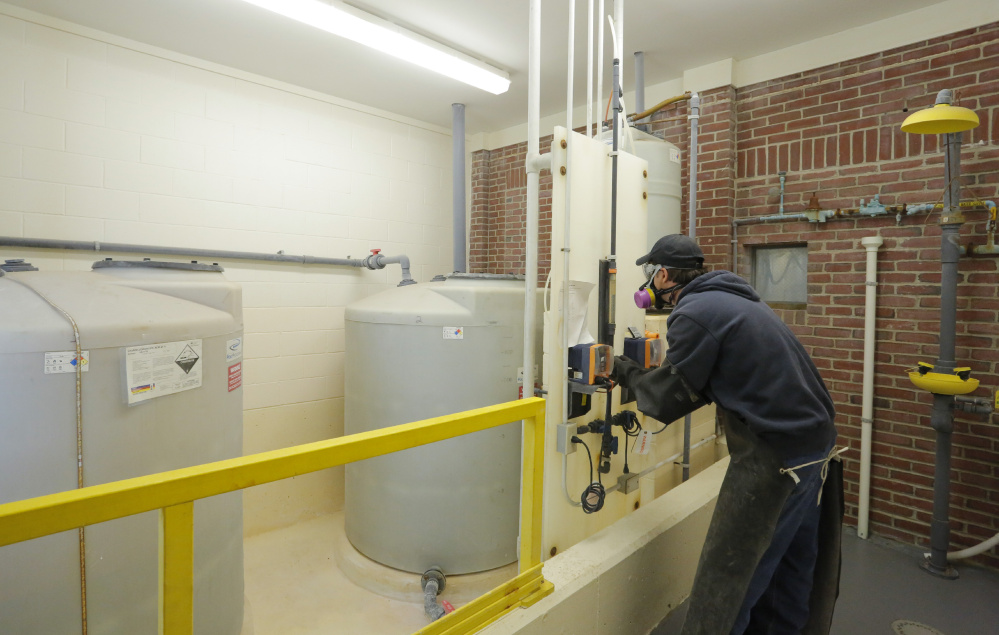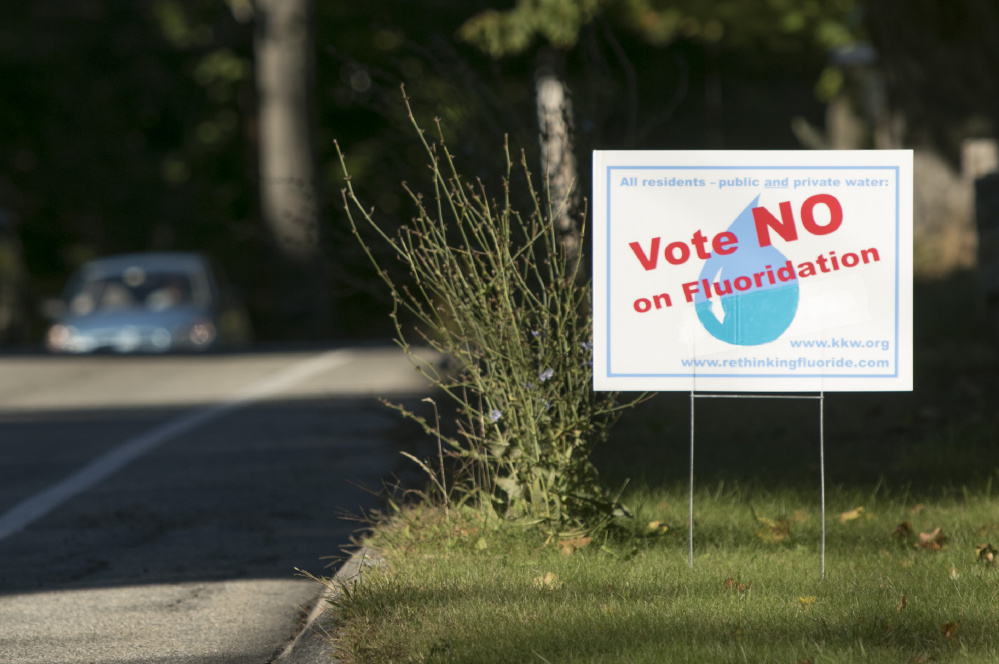Voters in the seven communities served by the Kennebunk, Kennebunkport and Wells Water District will vote next month on whether to continue adding fluoride to drinking water.
The push to put the issue to voters is backed by a small group of residents who say adding fluoride to drinking water amounts to mass medicating and raises concerns about over-fluoridation. But local dentists and health experts say water fluoridation is a beneficial public health measure that prevents tooth decay, especially in children.
Health experts champion the fluoridation of municipal water systems as one of the most important advances in public health of the 20th century, according to the U.S. Centers for Disease Control and Prevention.
Janice Hanson, a Kennebunk resident and chairwoman of the Campaign to Reconsider Fluoride, says the time has come to reassess whether adding fluoride to the water in Kennebunk, Kennebunkport, Wells, Ogunquit, Arundel and portions of Biddeford and York is really beneficial. The Campaign to Reconsider Water Fluoridation circulated petitions to collect signatures to put the referendum on the Nov. 8 ballot. In Maine, the decision to add fluoride to water is left to residents of towns served by the local water district. “We don’t have a choice about whether to drink it, bathe in it and be exposed to it,” Hanson said.
The water district started adding fluoride to water in 2004 as the result of a 2002 referendum. The district trustees have taken a position against adding fluoride.
In the past months, representatives of both sides of the issue have spoken at public hearings and forums. Several local dentists say they have spoken publicly in support of fluoridated water because they have no doubt it improves oral health in a state where many low-income or rural residents don’t have adequate access to dental care.
“When you look at the science and benefits, it’s a public health measure that works,” said Dr. Dean Tourigny, a Biddeford dentist who “unequivocally” supports water fluoridation. “There aren’t many public health measures that can stand up to it.”
The practice of adding fluoride to water in the United States began in Michigan in the 1940s as a way to prevent tooth decay. Fluoridation reduces tooth decay by about 25 percent over a person’s lifetime and every dollar spent on community water fluoridation saves at least $38 in costs for dental treatment, according to the Maine Center for Disease Control and Prevention.
More than 204 million people in the United States are now served by public water supplies that contain enough fluoride to protect teeth. In Maine, 67 water systems provide fluoridated water to 132 communities.
About 49 percent of Maine’s population uses public water supplies and 80 percent of those supplies include fluoridated water. Because of the high number of people who use private wells, about 40 percent of Maine’s total population has fluoridated drinking water in their homes, according to the Maine CDC.
CONCERNS LEAD TO VOTE
Hanson, of the Campaign to Reconsider Water Fluoridation, said she started reading about the side effects of water fluoridation after caring for her bedridden elderly mother. After using a fluoridated prescription toothpaste, her mother’s teeth darkened and started to break. Hanson believes that happened because her mother had too much fluoride.
After researching fluoride, Hanson approached Norm Labbe, the superintendent of the water district, with her concerns. Labbe – who is opposed to adding fluoride to public water supplies – had heard from several other residents with similar concerns and put them in contact.
Those residents formed the anti-fluoride group, which now has around 10 members. There are no local requirements that the Kennebunk-based group disclose information about donors and campaign spending. It is not registered as a political action committee with the state. The group maintains a website, rethinkingfluoride.com, and a Facebook page.
Hanson said group members share a number of concerns about fluoride, which they say is an unnecessary toxin that should not be ingested. They assert that putting it in drinking water has little effect because the fluoride does not stay on the surface of teeth and, for many people, is consumed in large amounts if they are drinking lots of water.
“To be putting this in our drinking water seems not prudent,” Hanson said.
Labbe said the water district keeps the fluoride level at 0.7 milligrams per liter, the optimal level suggested by the Environmental Protection Agency. Adding fluoride goes against the mission of the water district to provide safe drinking water, he said.
“We’re not doctors. We have a problem being injected into the medical profession because that’s not our mission. Our mission is to provide safe drinking water, not to add a drug to the water to have an effect on part of the human body,” he said. “When that effect is questionable, we have a concern about that.”
SUPPORT FOR FLUORIDE STRONG
Though some residents question the efficacy of fluoridation, the practice of adding it to water has strong support from the Maine CDC, U.S. CDC, American Medical Association, EPA and American Dental Association. The Centers for Disease Control, the World Health Organization, EPA and American Dental Association have studied water fluoridation and determined it is safe and effective.
In the nearly 30 years he’s been practicing, Tourigny, the Biddeford dentist, said he regularly sees proof water fluoridation works. He no longer sees the level of decay older dentists tell him they used to see in patients.
“If I talk to my colleagues about before it was added (to the water) in the Biddeford area, they talk about having kids coming in with their first molars bombed out (with decay),” he said. “Now you just don’t see that.”
Dr. Jim Trentalagne, whose dental office is in Arundel, questions why people would want to remove fluoride from the water.
“I’ve been practicing for 22 years and I’ve traveled the world. I’ve seen what non-fluoridated water and the resulting cavities can be like, with lots of pain and suffering,” he said. “Having the fluoride in water is one of the best things we can do in the United States.”
Both Trentalagne and Tourigny said they do not have concerns about over-fluoridation, or fluorosis, which can cause white marks on teeth. They say there is no health risk from having fluoride in the water and they rarely hear from patients with concerns about ingesting fluoride.
“The ideal level of fluoride in the water can cut children’s cavities in half and keep them from pain and suffering as they age,” Trentalagne said. “This is a phenomenal public health measure.”
Gillian Graham can be contacted at 791-6315 or at:
Twitter: @grahamgillian
Copy the Story LinkSend questions/comments to the editors.






Success. Please wait for the page to reload. If the page does not reload within 5 seconds, please refresh the page.
Enter your email and password to access comments.
Hi, to comment on stories you must . This profile is in addition to your subscription and website login.
Already have a commenting profile? .
Invalid username/password.
Please check your email to confirm and complete your registration.
Only subscribers are eligible to post comments. Please subscribe or login first for digital access. Here’s why.
Use the form below to reset your password. When you've submitted your account email, we will send an email with a reset code.